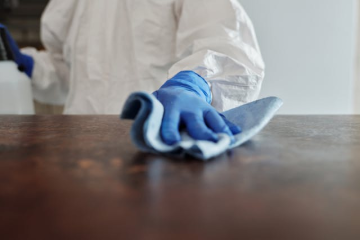Did you know that military bases are some of the most polluted places in the country? According to a report released by the Pentagon, military installations have been found to have water sources contaminated with toxins at levels above those allowed by the Environmental Protection Agency (EPA). This means that service members and their families who live on or near these bases are at risk of exposure to these harmful chemicals. Read on for more information about the dangers of toxic water exposure on base and find out what you can do to protect yourself and your loved ones.
What is toxic water exposure on base, and how can it affect you and your family members
When harmful chemicals and pollutants make their way into the water supply, it’s known as toxic water exposure. On military bases, this can happen due to industrial activity or contamination from nearby facilities. Exposure to these toxins can lead to various health problems, including respiratory and reproductive disorders. Unfortunately, it can also have long-lasting effects on unborn children and future generations through genetic mutations. As a member of the military or a family living on base, it’s important to stay informed about potential sources of toxic water exposure and take steps to protect yourself and your loved ones. This may include using a water filter in your home or following safety guidelines during activities like swimming or fishing in contaminated areas. Being proactive and vigilant can reduce the risks associated with toxic water exposure on the base.
The different types of toxins that can be found in water
When it comes to the safety of our drinking water, many people tend to focus on visible pollutants or naturally occurring contaminants like lead or arsenic. However, water sources can also present an entire world of invisible toxins. Industrial waste and agricultural runoff often introduce chemicals, heavy metals, and other hazardous substances. Manufacturing facilities may leak toxic substances directly into local waters, while agricultural pesticides and fertilizers can seep into groundwater over time. In some cases, harmful bacteria and viruses can contaminate water sources and lead to health problems for those exposed. It is important to stay informed about the potential toxins in your water supply and take steps to ensure safe drinking water for yourself and your community. Testing for specific contaminants and investing in filtration systems can help protect against the dangers of toxic water exposure.
How to recognize the signs and symptoms of toxic water exposure
The effects of toxic water exposure can vary depending on the specific substance and level of exposure, but some common symptoms include nausea, headaches, skin irritation, and respiratory issues. It’s important to pay attention to any changes in physical or mental health after coming into contact with contaminated water. Additionally, if the water appears murky or foamy or has an unusual smell, these could be indications of contamination. If there is reason to suspect toxic water exposure, seek medical attention immediately and report the issue to the proper authorities. Avoid consuming potentially contaminated water, and take steps to prevent further exposure. Remember, avoiding caution when protecting your health and those around you is always better.
What to do if you or a loved one has been exposed to toxic water
If you or someone you care about has been exposed to toxic water, it’s important to take immediate steps to minimize potential health risks. First, seek medical attention as soon as possible. Next, try to gather information about the source of the contamination and any warning signs. It can also be helpful to document your symptoms and keep track of any medical expenses related to the exposure. In addition, consider reaching out to a lawyer or advocacy group for support in seeking compensation or holding the responsible parties accountable. Whatever steps are necessary, don’t delay taking action after a toxic water exposure – it could make all the difference in protecting your health and well-being.
How to prevent toxic water exposure on base
Annual water testing and regular pipe and storage tank maintenance are important steps for preventing toxic water exposure on the base. In addition, increasing education and awareness about safe drinking water practices can also help to prevent contamination. This includes proper storage, boiling or treating water before consumption, and following any warnings or advisories from base authorities. Another crucial component is ensuring that all hazardous materials are properly disposed of to prevent them from leaching into the water supply. These preventive measures can protect our troops and their families from toxic water exposure on the base.
Conclusion
If you, Former residents at Marine Corps Base Camp Lejeune were exposed to drinking water contaminated with industrial chemicals, we want to hear from you. For those exposed to the toxic water at Marine Corps Base Camp Lejeune, it is important to be tested and take action if you have been diagnosed with an illness. You may be eligible for disability benefits through the Veterans Affairs office. If you have any questions or need help navigating the process, please get in touch with us, and we will be happy to assist you.









